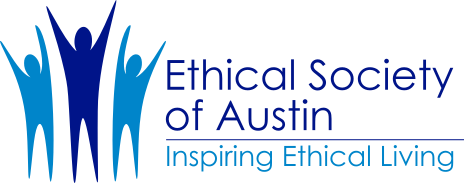This Week at the Ethical Society of Austin
April 28, 2024
10:30 am-12:00 pm
Reflections on: Our Ethical Relationship with Nature
The online Ethical Culture Journal, Reflections, published 2017 - 2019, provided a forum for Ethical Culture Leaders to discuss specific issues of relevance and concern to members of the Ethical Culture Movement in the 21st century. Carolyn A. Parker, Ph.D. continues a series of platforms drawing on these discussions.
Ethical Culture can be readily critiqued as being humano-centric. However our relationship to the natural environment has become urgent in our times in a way in which it was not when our Movement was founded. In short, Ethical Culture needs to expand its philosophical foundation to include an environmental ethic. How can we construct a philosophy to encompass an appreciation for, and protection of, the natural world?
This is a virtual meeting. If you would like to join us on Zoom, please request a link.
Join us Sunday mornings. Our community welcomes you.
-
In Ask culture, people grow up believing they can ask for anything – a favor, a raise, a last minute appointment, – fully realizing the answer may be no. In Guess culture, people grow up believing that they should only ask for something if they're pretty sure the answer will be yes.
The purpose of Colloquy is to help participants, in a communal setting, “delve more deeply into the depths of their own being and to develop the habit of self-reflection, to live in a closer conformity to their stated beliefs and to find a source of inspiration.”
During a Colloquy, participants reflect on a theme introduced by a facilitator. Sharing about the session’s theme often promotes deeper insight.
This is a hybrid meeting. You can join us in person at 5604 Manor Road, The Workers Defense Project building, or join us on Zoom. If you choose to attend in person, please bring proof of vaccination and masks are encouraged.
-
When Ethical Culture was founded in the nineteenth century, it introduced something new, perhaps radical, to the world of religion. Ethical Culture was also then on the cutting edge of progressive social change. We are now in a different time politically and religiously. What is there that is distinctive about Ethical Culture in the current era? With many diverse expressions of both liberal religion and humanism, what distinguishes Ethical Culture in matters of belief? How does Ethical Culture differ from generic liberalism?
This is a hybrid program.

